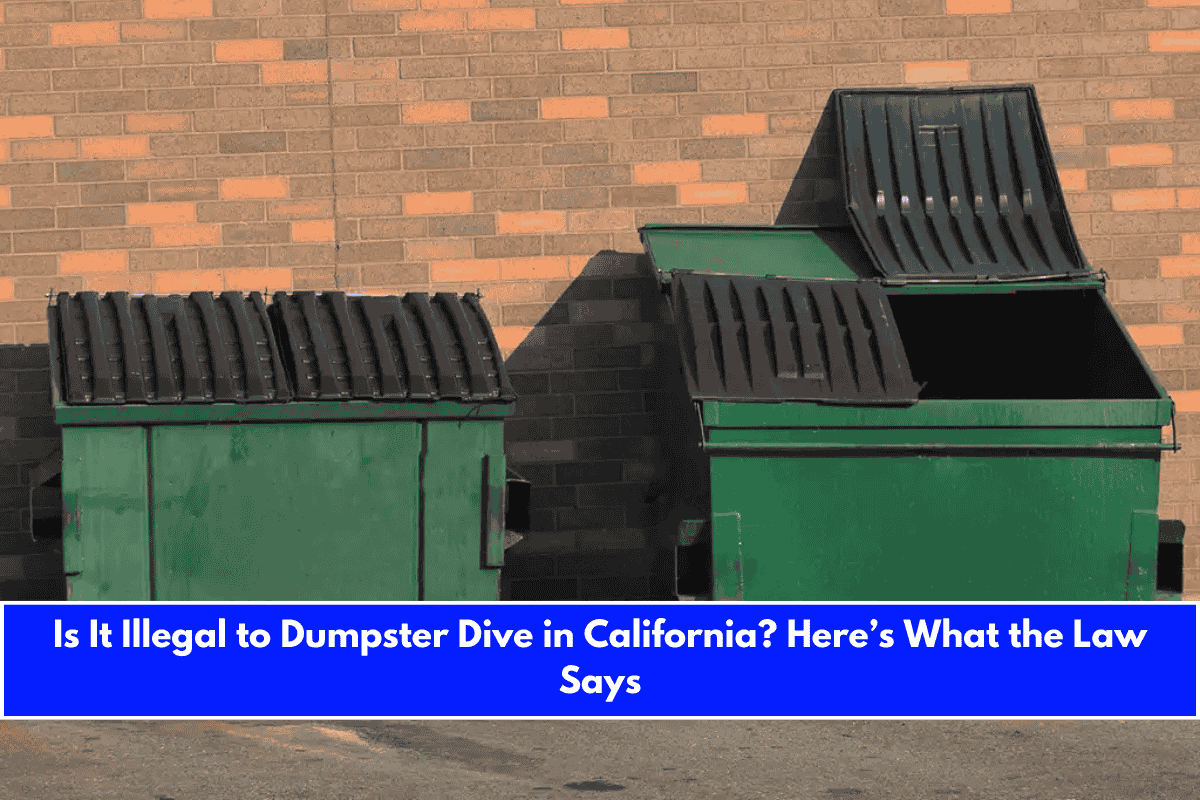Dumpster diving—the practice of searching through trash bins for discarded items—has become increasingly popular for those seeking to reduce waste, save money, or find hidden treasures.
But is it legal in California? The answer is nuanced and depends on several factors, including property rights, local ordinances, and how the activity is conducted.
Statewide Legality: The Supreme Court Precedent
At the federal and state level, dumpster diving is generally not illegal. The landmark 1988 Supreme Court case California v. Greenwood established that trash left outside for collection is considered public domain, meaning there is no reasonable expectation of privacy for discarded items.
This ruling applies throughout the United States, including California, making it technically legal to search through trash that has been left in a public space for collection.
Local Ordinances and Restrictions
However, the legality of dumpster diving in California is not uniform across all cities and counties. Local governments can—and often do—enact their own ordinances that restrict or prohibit dumpster diving.
For example, some municipalities have specific “garbage ordinances” that ban scavenging, while others may regulate the practice through health and safety codes.
Before dumpster diving, it’s essential to check the rules in your city or county. Local laws are often the deciding factor in whether you can legally dive in a particular area.
Trespassing and Private Property
A critical legal boundary is property rights. Most dumpsters are located on private property, such as behind stores, apartment complexes, or within fenced enclosures. Entering private property without permission to access a dumpster is considered trespassing and is illegal, regardless of whether the trash itself is “public domain”.
If a dumpster is behind a locked gate, inside a fenced area, or marked with “No Trespassing” or “No Dumpster Diving” signs, accessing it without permission can result in criminal charges such as trespassing or unlawful entry.
Even if the dumpster is unlocked and accessible, if it is on private property, you could still be asked to leave or face legal consequences if you refuse.
Other Legal Risks: Signs, Locks, and Disorderly Conduct
- Signs and Locks: Tampering with locks or ignoring warning signs is illegal and may lead to fines or arrest.
- Disorderly Conduct: Creating a mess, blocking sidewalks, or refusing to leave when asked can result in charges for disorderly conduct or littering.
- Theft: In rare cases, taking certain items from a dumpster (especially if they have not been officially discarded or are of significant value) could be prosecuted as theft.
Best Practices for Dumpster Diving in California
- Check Local Laws: Research city and county ordinances before diving.
- Avoid Private Property: Do not enter fenced, gated, or clearly marked private areas without permission.
- Respect Signs and Employees: Heed any posted signs and comply if asked to leave by property owners or employees.
- Leave No Trace: Clean up after yourself to avoid littering or disorderly conduct complaints.
- Ask for Permission: When in doubt, ask the property owner or manager for permission to access their dumpsters.
Dumpster diving is not inherently illegal in California, but its legality depends on where and how you do it. While state and federal law generally allow the practice, local ordinances and property rights often restrict it. The safest approach is to research local laws, avoid private property, and always act respectfully and responsibly.
Sources:
- https://www.reddit.com/r/DumpsterDiving/comments/181ypwe/california_dumpster_diving_rules/
- https://en.wikipedia.org/wiki/Dumpster_diving
- https://www.findlaw.com/injury/torts-and-personal-injuries/dumpster-diving.html
- https://www.findlaw.com/legalblogs/criminal-defense/is-it-legal-to-dumpster-dive/
- https://nearu.pro/lawyers/is-dumpster-diving-illegal











Leave a Reply